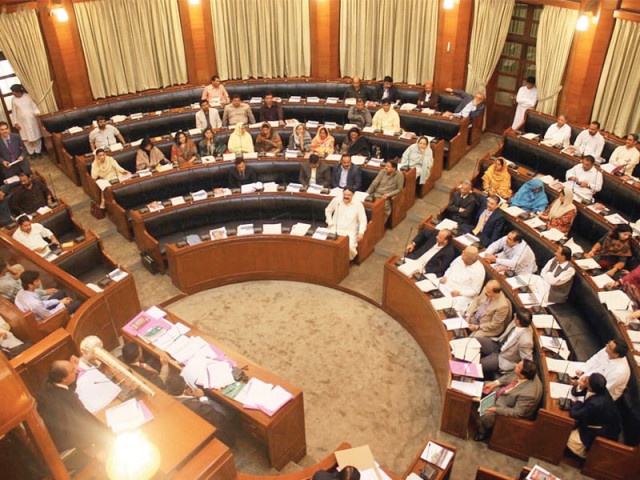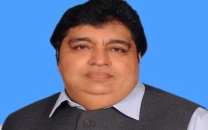Local government law: Calling all the shots, Sindh govt tweaks the law in its own favour
PPP had stated that it wanted to modify the 1979 system to give equal representation to all.

The Pakistan Peoples Party-led government has stated that the new local government system, the bill for which is likely to be presented in the Sindh Assembly today (Monday) will be a modified version of the 1979 law “to make it more representative”. PHOTO: ONLINE/FILE
Based on the draft of the Sindh Local Government Law 2013, it appears that the Sindh government’s claims of making an ‘autonomous’ law have fallen short since majority of the powers have been given to the provincial local government commission - which means that the chief minister will ultimately have the final say.
The Pakistan Peoples Party-led government has stated that the new local government system, the bill for which is likely to be presented in the Sindh Assembly today (Monday) will be a modified version of the 1979 law “to make it more representative”.
Not only can the commission conduct special inspection and inquiries against mayors/chairpersons of the councils, but it may also recommend the chief minister to suspend them for at least three months.
According to the law, the local government commission, headed by the local government minister, will have the same power as vested in a civil court under the code of civil procedures. The Pakistan Muslim League, both the Nawaz and Functional factions, however, have proposed that the government appoint a neutral person - preferably a judge or someone nominated by the Sindh High Court Chief Justice - to supervise the affairs of the local government commission instead of the local government minister, the post currently being held by PPP’s Owais Muzaffar.
Among the members of the commission will be two members of the Sindh Assembly, to be nominated by the leader of the house and leader of the opposition, and two qualified and experienced technocrats nominated by the government. However, the secretary of ministries of local government, rural development, public health engineering and housing and town planning will be ex-officio members.
The age for contesting elections, which was 18 years in the 1979 local administration set up, has been increased to 21 years in the new law.
Power of mayor or chairperson
The draft of the law states that the mayor of the city will have controlling and supervisory powers instead of the commissioner. In cases of emergency, he can issue directions to start or end any activity which requires the sanction of the government or council, including the Metropolitan Corporation, Municipal Corporation, municipal committee, town committees and even union council and union committees.
He will watch over the financial and executive administration of the council and perform the executive functions as assigned to him under the local government law.
The council through a resolution may make recommendations to the government for effective discharge of duties by any agency or authority of the government. The latter has to obey the council’s resolutions and if unable to do so, must give concrete reasons.
Composition of councils
The Metropolitan Corporation, District Municipal Corporation, Municipal Corporation, municipal committee, town committee and union committee will work in the urban areas of a district. Meanwhile, the district council and union council will operate in the rural district. The metropolitan corporation will include all elected chairpersons of the union committees, 22 per cent female members, five per cent non-Muslims and five per cent labourer/peasants members. Similarly, each union council/ union committee shall include a chairperson, vice chairperson, one female member, one labourer/peasant and one non-Muslim member.
Imposing penalties
Under the 2013 law, a penalty of Rs5,000 has been proposed on negligence of safe storage of food, drinks and other consumable items sold or supplied to the public. Any one slaughtering animals at a place other than the designated spot will be fined Rs5,000. The same penalty will apply to those who fail to keep the area in front of a shop, office or factory clean.
Published in The Express Tribune, August 19th, 2013.



















COMMENTS
Comments are moderated and generally will be posted if they are on-topic and not abusive.
For more information, please see our Comments FAQ